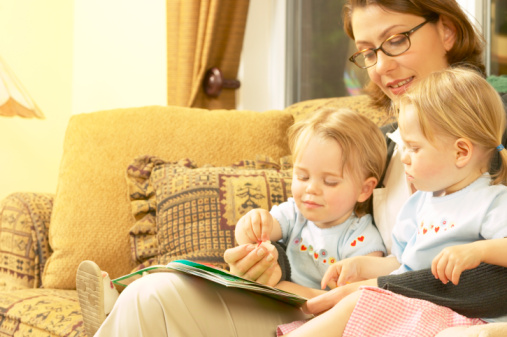 I was stuck in traffic recently so I tuned into Catholic radio. The radio show host was discussing some advice Pope Francis gives to nuns in his apostolic constitution Vultum Dei Quaerere (“Seeking the Face of God”): he warned them about the dangers of social media and asked them to watch their hearts to ensure they weren’t using the internet to escape the demands of their vocation. How about that? Nuns struggle with overusing technology like everyone else!
I was stuck in traffic recently so I tuned into Catholic radio. The radio show host was discussing some advice Pope Francis gives to nuns in his apostolic constitution Vultum Dei Quaerere (“Seeking the Face of God”): he warned them about the dangers of social media and asked them to watch their hearts to ensure they weren’t using the internet to escape the demands of their vocation. How about that? Nuns struggle with overusing technology like everyone else!
I definitely struggle with it, so later I decided to take a look at that constitution. I found several helpful reminders that apply not only to nuns, but to all the faithful and I think especially to mothers.
1. Keeping Social Media in Its Proper Place in Our Mothering
Here are Pope Francis’s own words about social media:
In our society, the digital culture has a decisive influence in shaping our thoughts and the way we relate to the world and, in particular, to other people. Contemplative communities are not immune from this cultural climate. Clearly, these media can prove helpful for formation and communication. At the same time, I urge a prudent discernment aimed at ensuring that they remain truly at the service of formation to contemplative life and necessary communication, and do not become occasions for wasting time or escaping from the demands of fraternal life in community. Nor should they prove harmful for your vocation or become an obstacle to your life wholly dedicated to contemplation. Vultum Dei Quaerere, 34.
There’s nothing wrong with using email, Facebook, and Twitter to stay in touch with friends, arrange our kids’ classes, and perform household tasks, but I am guilty of using the internet to “waste time” and to “escape” the routines of family life. How many times a day (. . . hour) do I really need to check my email? How many cartoons and cat photos do I really need to see on Facebook? Technology is definitely a distraction for me. Sometimes I can’t even cook an entire dinner without checking my email!
So I want to ask myself every day:
- Is technology helping me live out my vocation or is it distracting me from it?
- Does technology help me in my work of forming my children and running my home?
- Does technology help me love the people God has placed in my path? Or do I use technology to avoid loving my neighbor in person?
- Is technology drawing me closer or farther away from God?
- If I’m using technology to escape my mothering duties, why is that? Why do I feel bored, distracted, or lazy? How can I allow God to breathe new life into my mothering?
2. Building Our Families into a Community of Love, Not a Group of Selfish Co-Habitants
It’s easy for any family to fall into the habit of living parallel lives under the same roof, everyone doing their own thing, concerned with their own projects and goals without involving or considering anybody else, maybe even viewing other family members as a problem to be dealt with rather than treasured gifts from God given to us to help us know him and his love better. I do wonder whether this is actually becoming the norm in modern families. Kids often communicate and share more with their peers who are physically located in other houses than they do with their own parents and siblings who are located in the next room.
As Catholic mothers, we can allow God to use us like magnets to continually draw our children toward the center of our homes – sometimes literally into our family rooms and kitchens where we play, pray, and dine together, but also into relationship and mutual self-giving.
Pope Francis talks about “fraternal communion” – the building of community and companionship, and the cultivation of mutual support and a shared purpose. “[A]ll members must see themselves as builders of community and not simply recipients of its eventual benefits. A community exists inasmuch as it comes about and is built by the contribution of all, each according to his or her gifts.” Vultum Dei Quaerere, 25. Maybe we moms can remind our families about our real purpose and calling. Maybe we need to start at square one and work on understanding what that even means.
What is your family’s special, unique mission? Are you building a strong identity and mutual history? The family is a visible witness of the communion of the persons of the Trinity and the depth of God’s love, and this is most fully revealed through our deep connection and tender care for one another, through our shared good works, play, and unwavering solidarity.
Pope Francis reminds us that building strong communities, especially communities of love, requires acts of mutual self-gift. If family members are only concerned about themselves – trying to do the least possible to get by or merely avoid conflict – our shared purpose is diminished and our family identity is weakened. And guess what? Mutual self-giving means shared giving – not mom doing all the giving while everyone else sits around poking buttons on a remote. Our kids aren’t crowned royalty. Even children have gifts to contribute to the common good of the family.
According to Catholic social doctrine, we should prioritize the needs of the weaker members of our families (little children, the elderly, the ill), but weaker persons should be empowered to contribute to “the good of all” as they are able. See John Paul II’s Sollicitudo Rei Socialis, 39. Obviously a toddler can’t mow the lawn. We have to consider the limitations and special needs of very small children, but as they mature, they have an increasing capacity to contribute to the common good of the family, and we actually do our children a disservice when we don’t give them a chance to make such contributions.
Each family member, according to his or her gifts and capabilities, can be part of building up our families and not simply receiving its benefits. It’s in our care that our children will develop the capacity for self-giving love, for living fully in relationships of communion when they are adults, whether in the religious life or in marriage.
3. Cultivating Connection and Faith, Not Super-Duper Efficiency
I appreciated this reminder from Pope Francis about balancing work and prayer:
As the great contemplative saints have warned, work must never stifle the spirit of contemplation. Your life is meant to “poor in fact and spent in hard-working moderation” – as your solemnly professed vow of evangelical poverty requires. For this reason, your work should be done carefully and faithfully, without yielding to the present-day culture and its mindset of efficiency and constant activity. The “ora et labora” of the Benedictine tradition should always be your inspiration and help you to find the right balance between seeking the Absolute and commitment to your daily chores, between the peace of contemplation and the effort expended in work. Vultum Dei Quaerere, 32
As mothers, we are very busy with work – noble, holy work that can seem like drudgery at times because some of it is repetitive and not terribly interesting. We will never really finish laundry, will we? As soon as the sink is clear, it seems another dirty plate appears. This work, for me, has led to greater humility. I’ve learned that I need this work to keep my inflated ego in check. God gives me graces through laundry and dirty plates. Because of the intensely physical nature of mothering, I’ve gained a keen awareness that work can be a form of prayer.
On the other hand, I can definitely fall into the trap of “efficiency and constant activity” that Pope Francis warns about. I have my to-do list like most moms; my calendar is front and center on my kitchen counter (my command central). Because I homeschool four children and teach classes to other homeschooled students, I have to be very organized and efficient with how I use my time. But there’s a difference between using my time wisely and being so efficient that I actually short-change my family relationships and my prayer life.
Sometimes when my husband isn’t home for dinner, I give my kids their plates and I eat dinner standing up at the counter so I can clean the kitchen while I eat. I know this isn’t a mortal sin, but I think it’s a symptom of what Pope Francis is talking about. Sometimes I have a hard time just relaxing because I’m anxious about I left to do in my day or even what’s on my agenda the next day.
On the mornings that I teach my classes, I often forgo my morning prayer because I’m frazzled – or maybe it’s a passing mutter as I race off to the shower. God loves our prayers, no matter how short, and I do know that he looks with soft eyes upon mothers who grapple with so many competing demands on their time. But I think I can be more mindful. I know that even five minutes with God can transform my anxiety and help me gain perspective about my day and my work.
If I don’t surrender everything to God –even my calendar and cleaning lists – I will never have enduring peace. Efficiency without faith is depressing. Mothering work is truly holy work – all of it – and when I surrender it to God he truly helps me recognize his own gorgeous, continual laboring in this world. So, yes I should sit down with my kids to eat when my husband isn’t home –perhaps particularly because he isn’t home. Yes, I need to watch the balance of ora et labora in my own life, especially on teaching days when I’m anxious.
Thanks for the reminders, Pope Francis. And thank you for the traffic jam, God. You always have my back.
